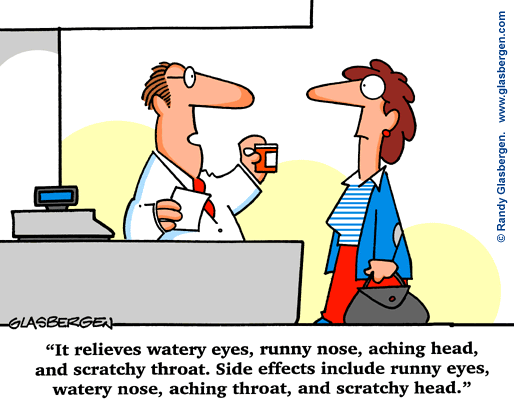What You Need to Know About Depression – Oblander Chiropractic
 I was once a person with depression. Not “just” the baby blues or a few months of feeling down and out – I had all out don’t-want-to-live anymore depression for about 5 years.
I was once a person with depression. Not “just” the baby blues or a few months of feeling down and out – I had all out don’t-want-to-live anymore depression for about 5 years.
It is surviving those five years of my life that has been a major contributor to my passion to help others have health and wellness in their lives.
The dictionary defines depression as: A condition of general emotional dejection and withdrawal; sadness greater and more prolonged than that warranted by any objective reason.
My personal definition of depression is pain, anguish, torture, agony, grief, melancholy, and suffering, etc. which overshadows the life of an individual who has every reason to feel otherwise. Depression is the sponge that robs life of its joy and satisfaction while wreaking havoc with relationships, families, and the life of the depressed individual.
Most people think that depression is a mental illness – in the medical books that is how it is defined but I can tell you from personal experience that depression affects every area of health: mental, emotional, physical and spiritual. I can also tell you that for each of those headline-grabbing stories about those with “mental illnesses” gone haywire, there are millions of depression victims suffering silently who are of no danger to anyone but possibly themselves. Those millions only want to be well again.
My own experience with depression included allopathic (MD’s) treatment and alternative treatment.
My first experience was with MD’s. MD’s sought to mask my symptoms with medications. The egos of the doctors who treated me did not allow me, as the patient, to be a viable participant in my own treatment. Unfortunately, patients with mental illnesses are often judged incapable by health professionals of being able to have clear, coherent thoughts. My doctors may have thought I was “crazy” but even now – these many years later I believe that I knew my body and what my body was experiencing better than anybody and that I should have been considered an essential participant in my treatment. However, the issues I had with allopathic treatment went deeper than that. I have always believed in addressing the source of a problem. Therefore, I wanted to get to the root of what was causing my depression. Getting to the root of a health issue is not something a standard MD does. A standard MD looks at symptoms, makes a diagnosis, and whips out the prescription tablet. For me, masking symptoms was not an adequate solution.
My second experience was with chiropractors. They tested my blood, found that I was suffering from severe adrenal fatigue and that I was in need of other nutritional components. They recommended the appropriate herbal remedies. From there, they worked with me to get to the root of the other physical ailments that I was suffering from – believing that all of the ailments I was suffering from were related. Finally, they encouraged me to do stretching exercises, deep breathing, and to incorporate inspirational books and literature into my life on a daily basis. Their treatment included regular adjustments to make sure that my nervous system (and therefore my entire body) was working as optimally as it could.
Eventually, we were able to find that my depression was directly related to my 24/7 migraines. I had been suffering from migraines for almost 13 years by the time I first received chiropractic treatment. The chiropractors who treated me helped me find the cause of my headaches and then eliminate them. Once my pain levels were significantly reduced – my depression left.
The chiropractic treatment and nutritional therapy that I received was not a “magic pill” and my depression and migraine headaches were not remedied overnight. However, they were eliminated and, for me, finding and removing the cause was a much better solution than masking symptoms for the rest of my life.
As a former sufferer of depression, I can tell you what depression was and what it wasn’t and what I have since seen in common among those I know who suffer with depression.
Depression, for me, was not a complete withdrawal from life. It was also not a choice. I could not choose to be better just because I wanted to be. Although learning to have a more positive mindset helped – it too was insufficient. What depression was was the loss of the emotional coordination I had once had. I was no longer able to navigate the normal ups and downs of life with the same tenacity and flexibility I had once possessed. It was not unlike losing muscle control in a hand or a limb but in this case it was my emotional state that lost its coordination and control.
I also can tell you that just like any victim of an accident or illness – my need for love and support did not go away – instead, it became even more important.
There are several components that I believe link themselves to depression:
Inadequate Nutrition – I believe that the absence of adequate nutrition can be a huge contributor to depression. Good whole food supplements are wonderful but a diet rich in fruits, vegetables and whole grains is not just important to a healthy body – it is also important to healthy emotions.
- Health Issues – Physical health that struggles can and usually will affect emotional health. Again, what we eat is so important and so is exercise. Those endorphins that help us feel better when we do not have depression also help us feel better when we do. Chemical imbalance is a common culprit in depression. (Sometimes chemical imbalances can be caused by prescription drugs.)
- Lack of Proper Self-care – How we take care of ourselves and the expectations we place on ourselves is huge. I was personally guilty of too often burning the candlestick at both ends. I see many sufferers of depression who are guilty of the same thing. Our bodies are amazing in their ability to adapt and compensate. For those who push the limits relentlessly there often comes a time when their body decides to give them a warning that they need to slow down and take life a little easier. Depression is often that warning.
- Negative Self-talk – We all talk to ourselves. We all have self expectations. It is common for those who suffer from depression to have unrealistic expectations of themselves and to be especially hard on and/or demanding of themselves. We all need to be as kind to ourselves as we are to our best friend or sweetheart. It is important that we love ourselves.
- Lack of Spirituality – Spirituality or the ability to look to a higher source of power to assist us in life is incredibly important. When we believe that we can only rely upon ourselves or that it is us against the world – just that thought alone can be depressing. I found that spending time each day with inspirational literature and working to build my personal spirituality helped me immensely.
- Lack of Faith – The faith I am talking about here includes faith in ourselves, in our fellow man and in our creator. Believing in ourselves and in our ability to change, to improve and to create a meaningful life is incredibly important. Believing that we can heal and that life can improve is critical.
I remember once having a conversation with a woman regarding my depression. Frustrated with my inability to function in a healthy and normal way, she accused me of choosing to be depressed. I can tell you that no one “chooses” to be depressed. However, I do believe that our lifestyle choices can greatly influence our propensity for depression. I also believe that our lifestyle and attitude choices greatly influence the type of health we will enjoy and how we will age. It would be wonderful if depression could become a thing of the past. In the meantime, I hope we will all do what we can to minimize its likelihood and to help those who are suffering!
What You Should Know about Whiplash
 Nearly 27% of drivers have been involved in a car crash in the last five years. (I was one of them.) In 2008 there were 208 million licensed drivers in the U.S. Based on these numbers we can estimate that over a five year period about 56,160,000 drivers will be involved in a car accident. That comes out to 11,232,000 accidents a year and over 30,000 a day. In other words…there are a lot of motor vehicle accidents in this country every year!
Nearly 27% of drivers have been involved in a car crash in the last five years. (I was one of them.) In 2008 there were 208 million licensed drivers in the U.S. Based on these numbers we can estimate that over a five year period about 56,160,000 drivers will be involved in a car accident. That comes out to 11,232,000 accidents a year and over 30,000 a day. In other words…there are a lot of motor vehicle accidents in this country every year!
One of the most common injuries associated with motor vehicle accidents is whiplash. Whiplash is an injury to the neck caused by sudden acceleration-deceleration force. This is usually the result of a stationary vehicle being struck from behind. This causes the torso to thrust forward while the head is thrown back into hyperextension and then whipped forward into a hyper-flexed position. This causes stress and strain on the soft tissues of the neck including muscles, tendons, ligaments and joint capsules. Symptoms of whiplash include, but are not limited to pain, stiffness, headaches, dizziness, tinnitus and weakness.
Many factors account for the severity of whiplash and the resulting symptoms. The severity of the impact and position of the head at impact are major factors in the potential severity of the injury. The health of the individual prior to the accident can make a big difference. A young person in good health will fare better than an older individual with preexisting degenerative changes in the neck. However, regardless of the perceived severity of the accident, all whiplash cases need to be taken seriously no matter how minor it may appear.
In many situations only the symptoms of whiplash are treated. Muscle relaxers, pain killers and anti-inflammatory medications are often prescribed along with adequate rest. Unfortunately, this is often the extent of the treatment.
Because of the damage that occurs in a whiplash injury, degenerative changes may be put into place that may not become obvious for many years after the initial injury. I was fortunate when my accident occurred in that I knew to seek chiropractic help right away. Being married to a chiropractor, I knew the risk factors involved. Another bonus was that I have had lots of interaction with the patients in our office that have been in accidents. Time after time, they have expressed a desire that they wish they would have known how much chiropractic treatment would have helped them when they first had their accident. Many have found that chiropractic treatment helped where medications and physical therapy failed. If you have been in a car accident and suffered a whiplash injury, talk to a chiropractor… you’ll be glad you did!
